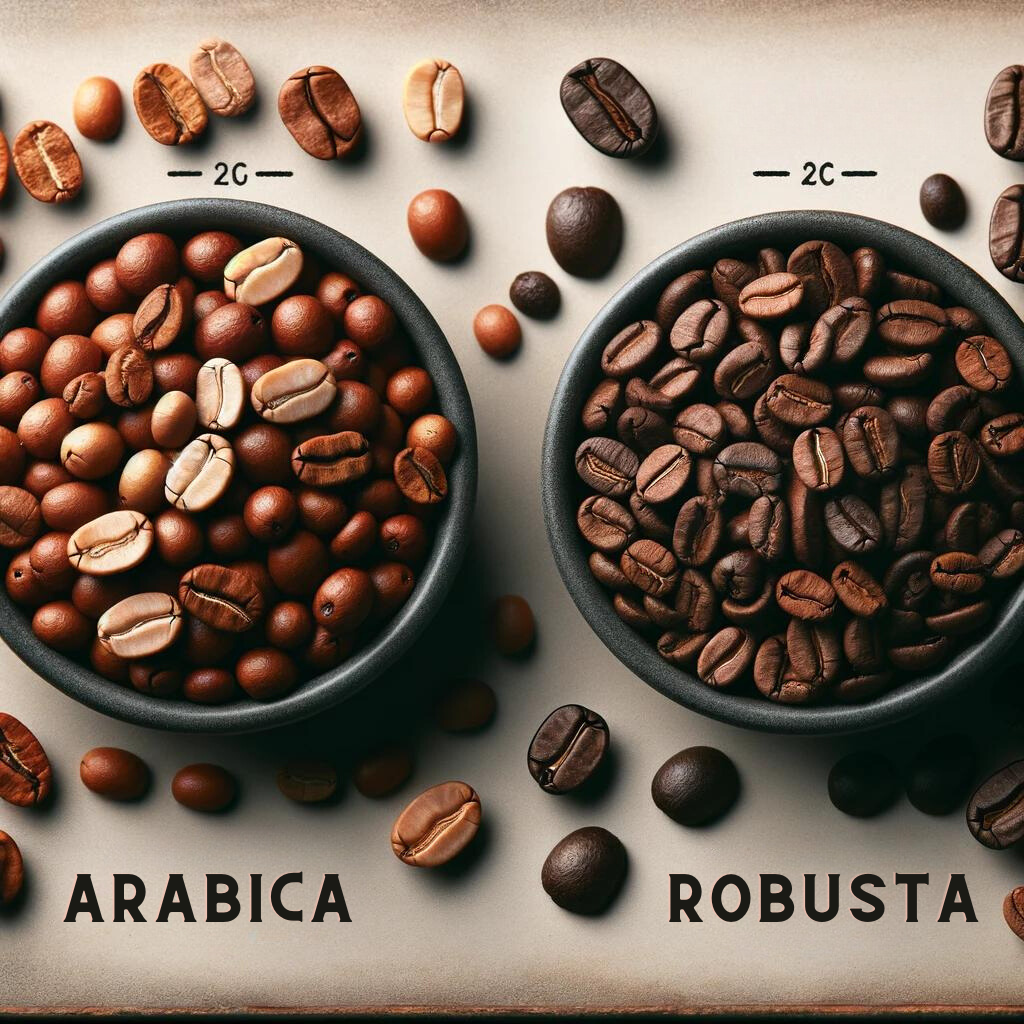The Acidity in Arabica Coffee
Arabica beans generally have a higher acidity level compared to Robusta beans. This acidity contributes to the coffee’s brightness and liveliness. However, the acidity can vary depending on the growing region, as well as other factors such as the bean variety, growing conditions, and processing methods.
The Flavor Profile of Arabica Beans
Arabica beans offer a wide range of flavors, from fruity and floral to nutty and chocolatey. The acidity in Arabica coffee is not about sourness; instead, it refers to the bright and vibrant notes that enhance the overall taste experience.
Comparing Arabica and Robusta Acids
To better understand the acidity of Arabica beans, let’s compare them to Robusta beans, which are known for their higher caffeine content and stronger flavor.
Acidity Levels in Arabica Beans
Arabica beans typically have a moderate to high acidity level, which gives them a pleasant and refreshing taste. The acidity can range from bright and citrusy to mellow and wine-like. Some popular Arabica coffee growing regions, such as Ethiopia and Colombia, are known for their bright and fruity acidity.
Acidity Levels in Robusta Beans
On the other hand, Robusta beans tend to have a higher acidity level compared to Arabica beans. This higher acidity can result in a more bitter and harsh taste. Robusta coffee is often described as having a bold and earthy flavor profile, with less complexity compared to Arabica coffee.
Factors Affecting Acidity in Arabica Beans
Several factors can influence the acidity of Arabica beans. Understanding these factors can help coffee enthusiasts choose the right beans and brewing methods to achieve their desired flavor profile.
Bean Origin and Growing Conditions
The growing region and altitude play a significant role in determining the acidity of Arabica beans. Different regions produce beans with distinct flavor profiles. For example, beans from Central America are known for their bright acidity, while those from South America tend to have a more balanced and mellow acidity. Additionally, higher altitudes often result in beans with higher acidity levels.
Processing Methods
The way Arabica beans are processed after harvesting can also affect their acidity. The two main processing methods are the washed (wet) process and the natural (dry) process. The washed process typically produces beans with a cleaner and brighter acidity, while the natural process can result in beans with a fruitier and more complex acidity.
Roasting Process
The roast level can significantly impact the acidity of Arabica beans. Lighter roasts tend to preserve more of the bean’s natural acidity, resulting in a brighter and more vibrant cup of coffee. On the other hand, darker roasts can mellow out the acidity and bring out more of the coffee’s body and richness.
Health Aspects of Coffee Acidity
Coffee acidity not only affects the flavor profile but also has potential health benefits. Let’s explore how acidity in Arabica coffee can impact digestion and overall well-being.
Effects on Digestion
Some individuals may experience digestive issues when consuming highly acidic foods or beverages. However, the acidity in coffee is often well-tolerated by most people. In fact, the natural acids found in Arabica coffee can stimulate gastric acid secretion, aiding in digestion for some individuals.
Benefits of Coffee Acidity
The acidity in Arabica coffee has been associated with various health benefits. Studies have suggested that the organic acids, such as chlorogenic acids, found in coffee may have antioxidant and anti-inflammatory properties. According to PubMed, these compounds may help reduce the risk of certain chronic diseases, including type 2 diabetes and certain types of cancer.
How to Choose and Prepare Arabica Coffee

Now that we’ve explored the acidity of Arabica beans, let’s discuss how to choose and prepare the perfect cup of Arabica coffee.
Selecting Beans
When selecting Arabica beans, consider the flavor profile you prefer. If you enjoy bright and vibrant acidity, opt for beans from regions known for their fruity and citrusy flavors. If you prefer a more balanced and mellow acidity, beans from South American regions may be a better choice. Look for reputable coffee brands or specialty coffee shops that offer high-quality Arabica beans.
Brewing Methods
The brewing method can also influence the acidity of your coffee. Brewing methods such as pour-over, Aeropress, and espresso tend to highlight the acidity in Arabica beans. On the other hand, brewing methods like French press and cold brew can result in a smoother and less acidic cup of coffee. Experiment with different brewing techniques to find the perfect balance of acidity for your taste.
Arabica beans are known for their acidity

Arabica beans are known for their acidity, which contributes to their vibrant and complex flavor profiles. Understanding the factors that influence the acidity of Arabica coffee, such as bean origin, processing methods, and roast level, can help coffee enthusiasts make informed choices when selecting and preparing their brew. So go ahead, explore the world of Arabica coffee, and savor the delightful acidity that enhances your coffee experience.
FAQ
Are Arabica beans less acidic than Robusta beans?
No, Arabica beans generally have a higher acidity level compared to Robusta beans. However, the acidity can vary depending on various factors, including the growing region, bean variety, and processing methods.
Does the acidity of Arabica coffee vary depending on the growing region?
Yes, the acidity of Arabica coffee can vary depending on the growing region. Different regions produce beans with distinct flavor profiles, including variations in acidity levels.
Can Arabica coffee be low-acid?
Yes, Arabica coffee can be low-acid. If you prefer a less acidic cup of coffee, consider opting for beans from regions known for their balanced and mellow acidity. Additionally, brewing methods like French press and cold brew can result in a smoother and less acidic coffee.
Try different Arabica coffee varieties to explore their unique flavor profiles. Experiment with different brewing methods to find the perfect cup of Arabica coffee for your taste. Share your favorite Arabica coffee recipe or brewing technique with us.



